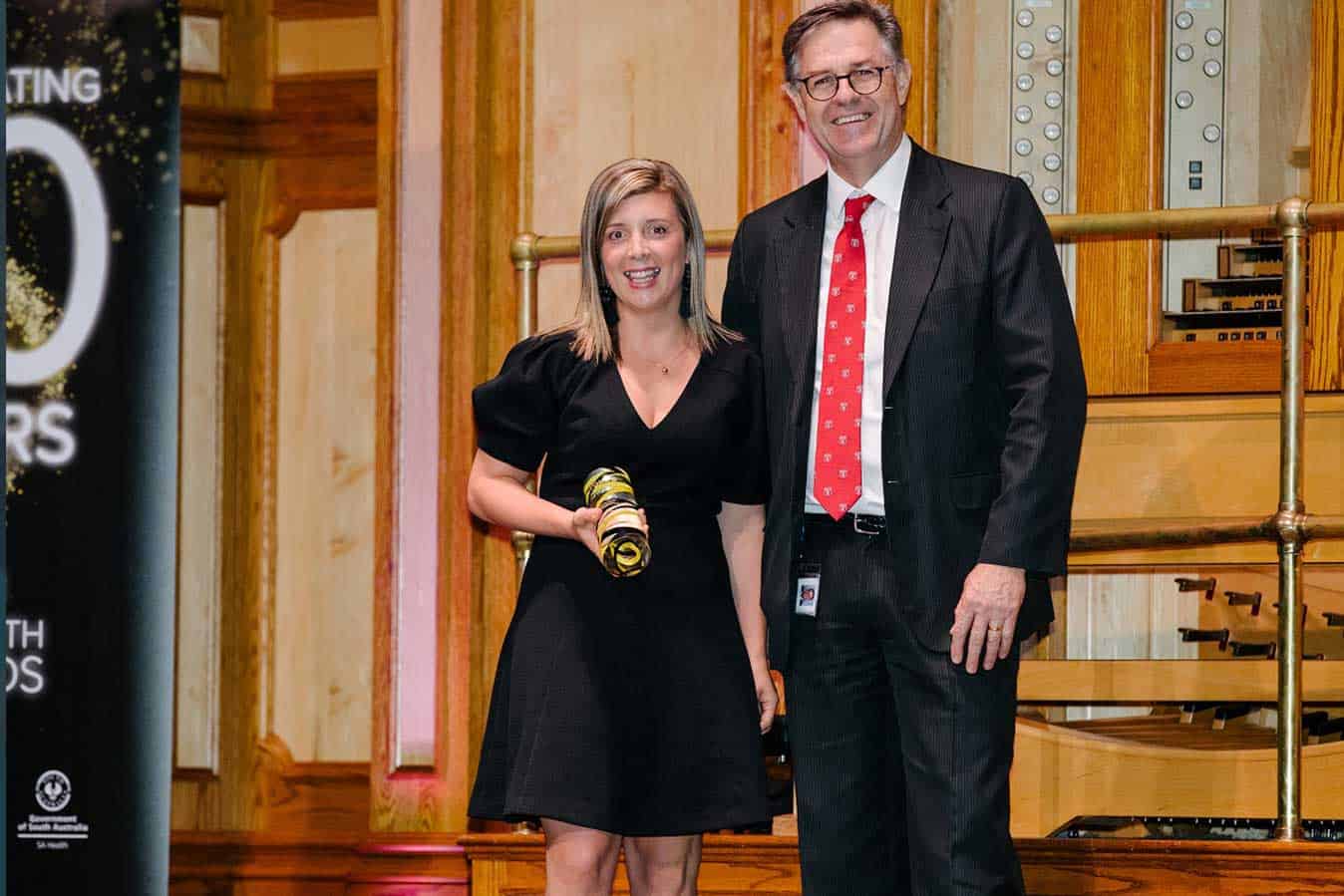Victoria Fitton, Nurse Unit Manager of the Cardiothoracic Wing at the Royal Adelaide Hospital, was named Young Professional of the Year at last year’s 10th annual SA Health Awards for providing leadership, boosting team morale and enhancing patient care through developing and implementing a number of initiatives.
Victoria pursued the Cardiothoracic field, which involves surgery of organs inside the chest, early on in her career and never looked back.
As NUM of the inpatient wing, Victoria manages about 50 staff at the highly acute, high turnover ward that deals in a range of both elective and emergency surgery.
“I enjoy seeing patients who can be extremely unwell undergo life changing surgery to then return home in a matter of days,” Victoria says.
“It is exceptionally rewarding to see. I enjoy educating my staff and continuing to develop their skills. For a high stress, high pressure environment we work hard on team morale and the patients as well as staff enjoy the camaraderie we have.”
Victoria was named Young Professional of the Year for spearheading a number of initiatives including The Cardiothoracic Surgery Enhanced Recovery Project, Acuity Tool, Delirium Package, Hybrid Advanced Life Support Instructors Course for Cardiology and designing specific Cardiothoracic Study Days.
Her development of the Cardiothoracic Surgery Enhanced Recovery Project was sparked after she noticed a gap in the amount of mobilising physiotherapy patients received post-operatively.
The project includes initiatives such as the ‘Cardiac Shuffle’, which aims to increase patients’ confidence levels to mobilise safely at home, and decrease their length of stay, has already recorded promising results.
Together with Dr Alice Bourke, Senior Geriatrician, Victoria also implemented a delirium project that has seen the development of risk assessment screening tools and the rollout of education to nursing and medical staff, including diversional therapy resources as well as a guide developed for nurses when specialling.
Victoria also helped initiate the hybrid Advanced Life Support Instructors Course for Cardiology and wrote and implemented specific Cardiothoracic Study Days focusing on key objectives for staff vital to their practice.
Another project, the Acuity Tool, looked at creating an evidence based and endorsed tool to measure the acuity of Cardiothoracic patients to enable high care needs to be attended to while preserving nursing care for the remaining patients in the unit.
It has seen a significant increase in NHPPD as well as improved morale, decreased work cover and improved patient outcomes, Victoria says.
She believes her ongoing targeted projects are making an impact but stresses they could not have worked without the engagement and support of her team.
“From the many projects it has allowed extensive research and analysis of data in the cardiothoracic patient population,” she says.
“The surgical patient population is ageing, patients have more co-morbidities and the nature of surgery is becoming more complex. It was for these reasons, combined with a workforce who were under significant stress, that was a motivator for research and a commitment to continuous learning.
“The consumers have been my focus throughout all of the initiatives, implementing projects to improve their journey and wellbeing throughout their entire hospital stay.”
To build on her research and projects, Victoria this year plans to visit two other cardiothoracic units around the country to compare, improve and benchmark the RAH’s service.








